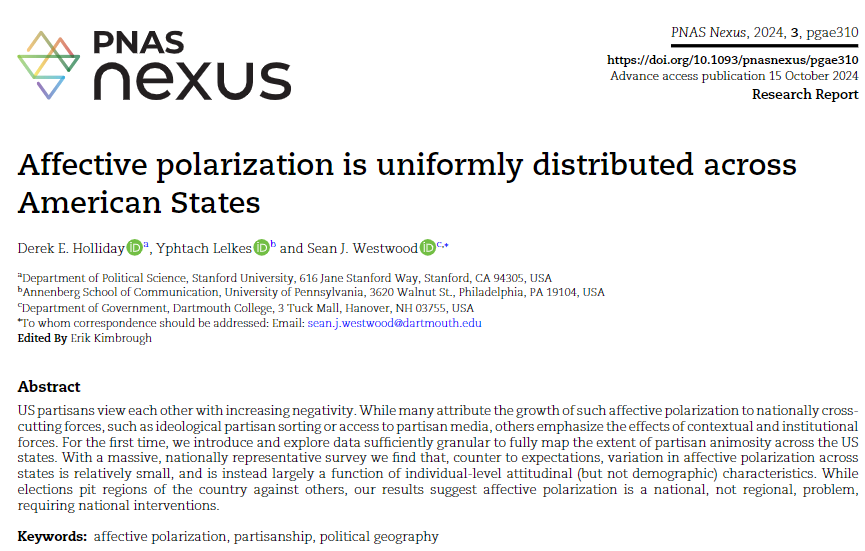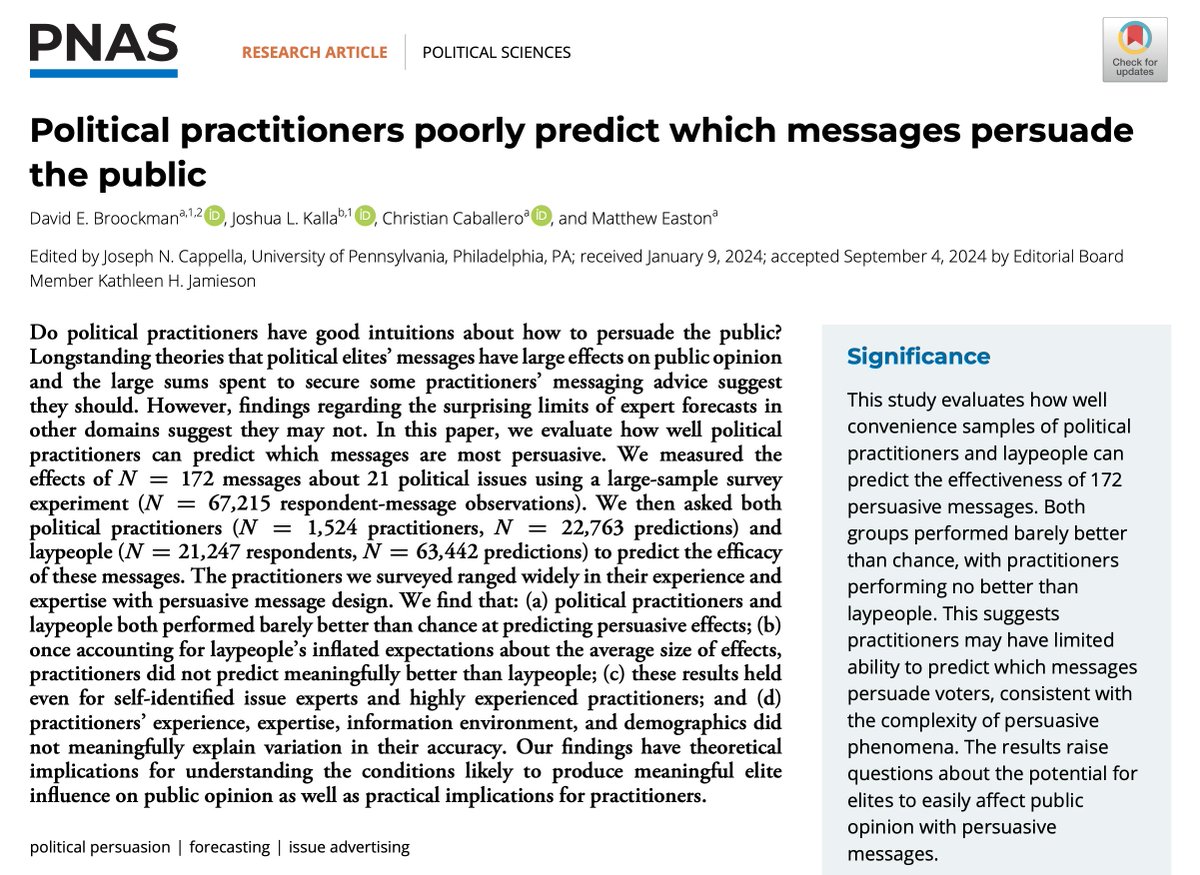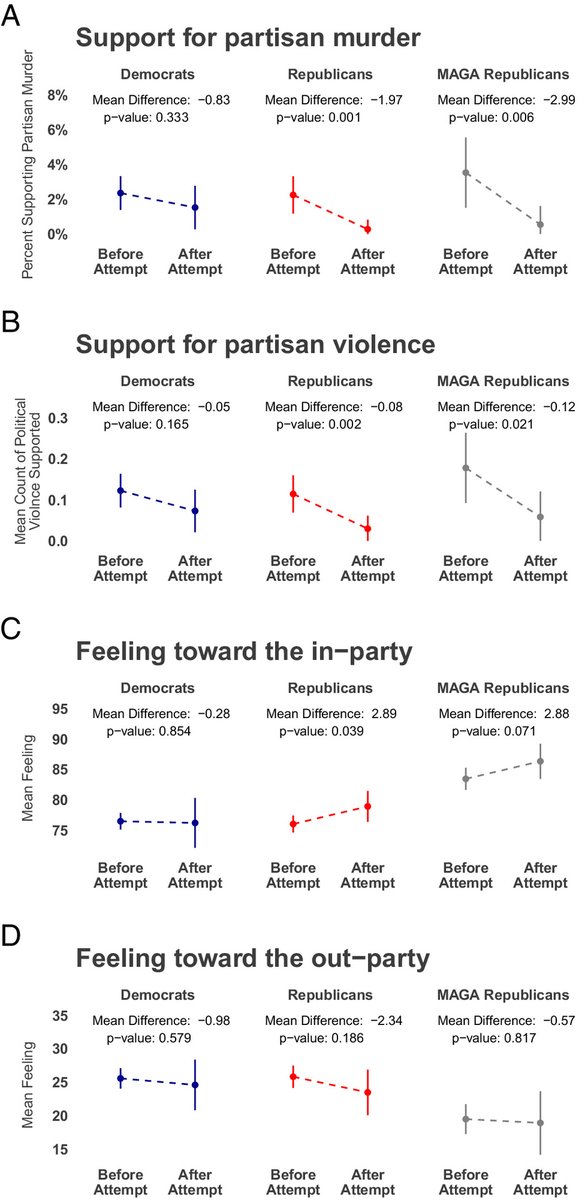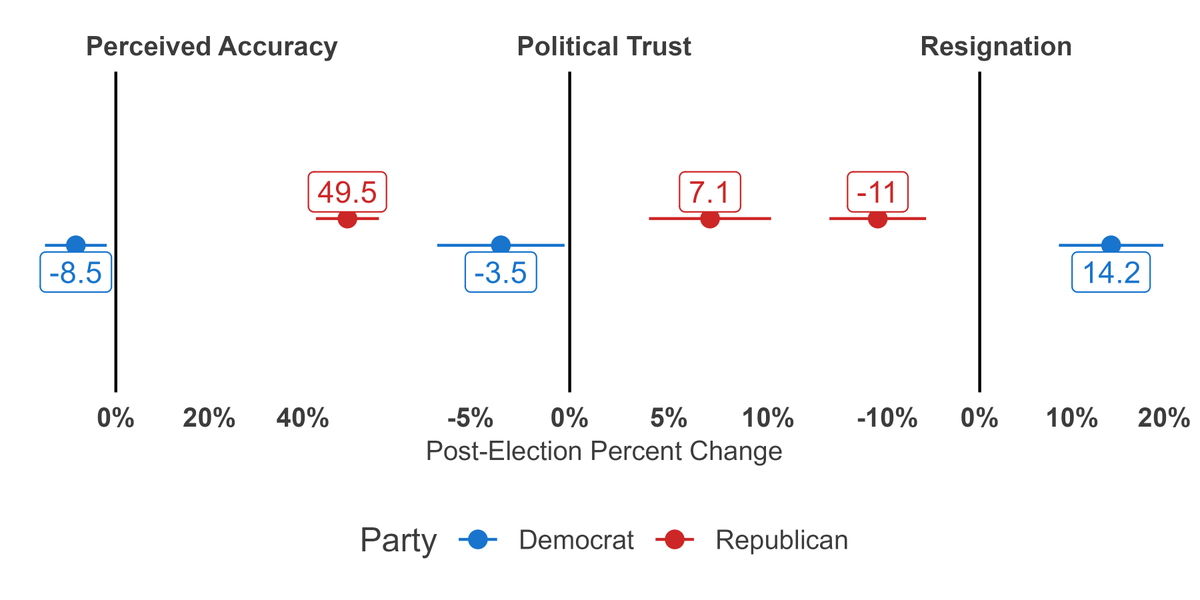
Derek Holliday
@d_e_holliday
PostDoc @Stanford @PRL_Tweets | PoliSci PhD @UCLA | Partisanship/State+Local Politics/Representation | #rstats | Trail Runner | PNW Expat | #YNWA | #TridentsUp
ID: 2538986654
https://derekholliday.com 01-06-2014 07:11:33
198 Tweet
939 Followers
1,1K Following

Research Report 2: 𝐀𝐟𝐟𝐞𝐜𝐭𝐢𝐯𝐞 𝐩𝐨𝐥𝐚𝐫𝐢𝐳𝐚𝐭𝐢𝐨𝐧 𝐢𝐬 𝐮𝐧𝐢𝐟𝐨𝐫𝐦𝐥𝐲 𝐝𝐢𝐬𝐭𝐫𝐢𝐛𝐮𝐭𝐞𝐝 𝐚𝐜𝐫𝐨𝐬𝐬 𝐀𝐦𝐞𝐫𝐢𝐜𝐚𝐧 𝐒𝐭𝐚𝐭𝐞𝐬 by: Derek Holliday Yphtach Lelkes Sean Westwood (Stanford University Annenberg School Dartmouth 🌲) 🔗doi.org/10.1093/pnasne…




Despite so much focus of the U.S. Election on a few battleground states, affective polarization is actually geographically uniformly distributed across states, finds Derek Holliday Yphtach Lelkes Sean Westwood doi.org/10.1093/pnasne…


Very grateful for all the comments so far -- the "simple models work best" machine learning paper w Marco Morucci now has a Github (and a non-technical explainer). We'll post code soon. Thanks for interest! github.com/ArthurSpirling…

New at PNASNews with David Broockman, christian caballero & Matty Easton: "Political practitioners poorly predict which messages persuade the public." As we head into the last week of the campaign, a good reminder that political practitioners have poor intuitions as to what persuades


Most Americans think their candidate will win the election. Partisans disagree on whether the candidates *will* concede if they lose. A majority of all partisans believe the losing candidate *should* concede...but when? Read our new Path to 2024 report! prlpublic.s3.us-east-1.amazonaws.com/reports/Octobe…


☹️🚨 Timely research alert! 🚨☹️ Joe Phillips and I ask: Do election outcomes impact affective polarization? An RDD using close House, Senate, and state-level prez results from 1996-2020 says yes. Losers depolarize by losing faith in their own side. 😢 osf.io/preprints/osf/…







Like high-income & high-education voters, lower-income & education voters care most about the major issues of the day. They do not care systematically more or less than other voters about policies that expand social welfare, redistribution, or labor rights cambridge.org/core/journals/…

🚨 Two new post-docs at GW University!! Both affiliated with Institute for Data, Democracy & Politics, one will be more computational, the other more experimental. Links: gwu.jobs/postings/119777 and gwu.jobs/postings/119779 Spread the word!



